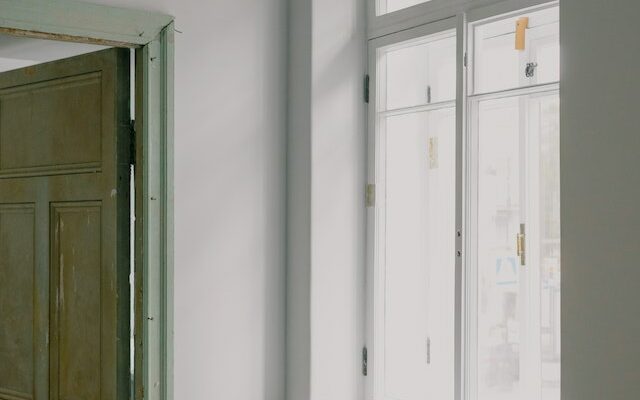When it comes to windows and doors energy efficiency is at the top of everyone’s priorities right now. And if it isn’t, it should be.
The cost of the average energy bill is going through the roof, and everyone is looking for ways to save on gas and electricity. People are abandoning their ovens in favour of slow cookers and turning down their radiators to pile on the blankets instead. The focus is on paying small prices to get long-term savings.
But not enough people are looking at the bigger picture with their energy bills. Small changes will protect the pennies but if your home isn’t insulated properly, then you will still haemorrhage the pounds.
One of the key weaknesses in the insulation of any home is always windows. When you replace solid bricks with clear glass you will always lose some of that all-important insulation but nobody wants to live in a dark, unhealthy home without windows.
The compromise of course is to make sure that your windows are performing their best in terms of thermal efficiency. Now is not a time to settle for draughty windows and rattling glass panes. New windows with sealed double glazing and well-fitted frames are the best way to improve the thermal performance of your home.
But about window material? We all know double glazing is a minimum for energy efficiency but what about the thermal performance of uPVC window frames versus modern aluminium windows?
In this post, we’re going to look at some of the most energy-efficient windows on the market – those with aluminium frames. We’ll look at exactly what makes them so energy efficient, as well as cover why a new set of aluminium windows will continue to protect the energy efficiency of your home for years longer than uPVC and even timber.
Which Type Of Window Has The Highest Heat Loss?
When it comes to windows, any window that is single-glazed will suffer serious heat loss. No matter how well-sealed your frames are, however many layers of insulating film you add, in the current climate single-glazing just won’t cut it for the majority of homes.
Single-glazed uPVC windows will have the worst thermal efficiency overall, but even aluminium windows will have terrible energy performance if they only have single-glazed glass. The heat escaping through the glass will destroy the efficiency of the windows overall, however energy-efficient the frames are.
The one exception to this of course is windows in listed buildings, where you are usually restricted on what replacement windows you have or if you can even replace them at all. Make sure to thoroughly research your options and allowances before adding double-glazing to protected period properties.
Do Aluminium Windows Meet Energy Efficiency Building Regulations?
Current building regulations state that replacement windows in existing homes should offer an energy rating of Band B as a minimum. This was bought in as part of Approved Document L so many windows and doors won’t yet match this energy efficiency but it gives a good guide when looking for new windows.
The energy-efficient nature of an aluminium window frame makes this a lot easier to meet than it is with uPVC windows. Pair your window frames with energy-efficient glazing, triple glazing in particular and your new windows will easily sail past the regulated standard to keep the heat lost through your windows to the absolute minimum.
How Much Can Double-Glazed Windows With Aluminium Frames Save?
When it comes to savings, it will always be down to the windows you are replacing. For example, if you’re replacing a well-maintained set of double-glazed timber frame windows with triple-glazed aluminium windows you are unlikely to see substantial savings, as the whole window value might not improve that much.
However, replacing single-glazed glass with double-glazed windows can cut down the heat loss through the window by 50%. This will make a significant impact on your energy bills and usually repay the cost of the windows in only a few years. The Energy Saving Trust states that a semi-detached home would save around £195 a year, a number that only increases as heating costs go up.
Do You Need Thermally Broken Aluminium Windows?
If you want your aluminium windows to be energy efficient then yes, you absolutely need a set of windows with a thermal break.
Aluminium on its own is not a particularly great insulator against heat loss. Historically, this has put people off getting this type of window and this is why getting an aluminium window with a thermal break is so important.
A thermal break will stop the heat transfer between your home and the outside world, significantly improving the energy rating of the frame material.
Can You Get Triple-Glazed Aluminium Windows?
If you’re looking to get new windows with triple glazing, then aluminium frames are actually the best choice.
This is because aluminium windows are so strong. Triple glazing has an extra layer of glass than standard double glazing units, which greatly impacts their weight. Both uPVC and timber windows can struggle with this weight in the long term and the average lifespan of these frame materials is reduced when triple glazing is involved.
Aluminium windows however are more than up to this task and are able to enjoy a full life span even with this added weight.
How Long Do Aluminium Windows Stay Thermally Efficient?
With high-quality aluminium windows, you can usually expect a long lifespan of 40 years or more and your window should stay energy efficient through the duration of this time. The strength of aluminium windows doesn’t just help them support larger, thicker or heavier glazing. It also means they are more durable and robust.
In fact, from the day they are installed, aluminium windows are much more likely to retain insulating properties than other materials. They won’t degrade, chip or warp like uPVC windows meaning they will keep a better seal.


